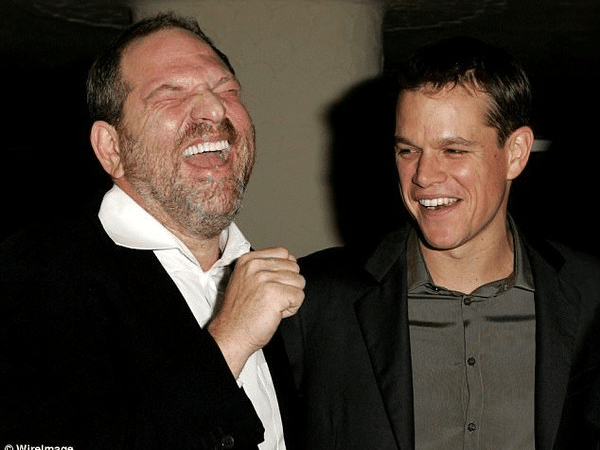Epsilon Theory In Full
The soul of Epsilon Theory is our long-form content, a library of hundreds of pieces written by Ben, Rusty and others over the course of the last 5+ years. These are the print-and-take-home-for the weekend notes that made Epsilon Theory what it is today.
Many of the memes that drive our political behaviors inherently push us toward Competitive Games and tribalism. Resisting these memes means losing both arguments and credibility – and we have to be willing to do both.
Part 13 of the Notes from the Field series discusses The Narrative Machine, which can help us see the invisible memes that drive our political behaviors. Because you’re smart enough to make up your own damn mind.
Part 2 of the multi-part Three-Body Alpha series, introduced in Rusty’s recent Investing with Icarus note. The Series seeks to explore how the increasing transformation of fundamental and economic data into abstractions may influence strategies for investing — and how it should influence investors accessing them.
Two negative narratives have derailed ebullient markets – Inflation and Trade War. While I think both are here to stay, I’ve put inflation through the Narrative Machine first. The result? Inflation is Coming.
The allure of a fundamental truth is powerful. Investors are hungry for that kind of clarity about markets, but it doesn’t exist. In the first in a series, Rusty discusses a framework for investing in a time of Icarus.
We live in a Cartoon Age, an era not of alienation per Karl Marx, but of alienation per Groucho Marx. What’s the cause, what’s the future, and what do we do about all this? It’s a TL;DR cri de coeur in Part 12 of Epsilon Theory’s Notes from the Field series.
The #1 question investors ought to ask of a financial services company trying to sell them something is: “What is it, really?” If you don’t know what you’re investing in, you’re liable to end up eating a lot of crunchy frogs.
This is Part 11 of Ben’s Notes from the Field series. I don’t need to calculate a Sortino ratio to know if my dogs are doing a Good Job. Same with active investment management. Same with active citizenship. It’s all about embracing Convexity, not as a mathematical cartoon, but as a philosophy.
On this special episode of the Epsilon Theory podcast, we share an excerpt from a conference call we recorded on February 13 discussing our thoughts on the market selloff earlier in the month. You’ll hear from Christopher Guptill, co-CEO and chief investment officer at Broadmark Asset Management and Dr. Ben Hunt, author of Epsilon Theory.
Most investors think that other investors think that last week’s correction was about vol-selling. The real story? Everybody knows that everybody knows that inflation will change the way portfolios are built and managed.
The inevitable result of financial innovation gone awry, which it ALWAYS does, is that it ALWAYS ends up empowering the State. When too clever by half people misplay the meta-game, that’s all the excuse the State needs to come swooping in and crush them, just as they are with Bitcoin today they did with Bear and Lehman in 2008. Installment #10 from Notes from the Field.
Everyone reading this note has, at one time or another, gotten scared about markets and decided to hedge their professional portfolio or personal account. The Game of Markets is changing. But should we be scared?
We’ve had a heckuva busy year at Epsilon Theory, so to ring out 2017 I thought it might be helpful to distribute a master list of our publications over the past 12 months. We’re long essay writers trying to make our way in a TLDR world, so even the most avid follower may well need a map!
In a two-body market, the interactions of fundamental data and prices are generally predictable. In a three-body market, the epsilon — investor behaviors in response to narratives — exerts a powerful gravitational force which must be considered when building a portfolio.
What if I told you that the dominant strategies for human investing are, without exception, algorithms and derivatives? I don’t mean computer-driven investing, I mean good old-fashioned human investing … stock-picking and the like. And what if I told you that these algorithms and derivatives might all be broken today? You might want to sit down for Part 9 of the Notes from the Field series.
The libertarian paternalism of a Nudge culture in finance has created an industry of investors who care about fees but have forgotten about taxes, trading costs, slippage and behavioral costs of actively trading passive instruments.
The pecking order is a social system designed to preserve economic inequality: inequality of food for chickens, inequality of wealth for humans. We are trained and told by Team Elite that the pecking order is not a real and brutal thing in the human species, but this is a lie. It is an intentional lie, formed by two powerful Narratives: trickle-down monetary policy and massive student debt financing. Part 8 of the Notes from the Field series.
If you can manage to find a truly independent voice in your personal, political and financial life, pursue it with reckless abandon. Don’t set it to the side so that you can build a brand or make an impact. Get your ass out of the boat, grab your bow, strap on your broadsword and sound the pipes. All that’s left is to decide what song you’re going to play.
On episode 26 of the Epsilon Theory podcast, we welcome back Rusty Guinn, our executive vice president of asset management, to talk about political markets — a topic just as important to Ben as capital markets. Be sure to also check out the companion pieces to this podcast: “Always Go To the Funeral,” “Sheep Logic,” and “Before and After the Storm.”
It was no great secret that Weinstein was and is a serial rapist. Apparently everyone in Hollywood was familiar with the stories. It was ubiquitous private knowledge, and pretty darn ubiquitous public knowledge. I mean, if you’re making jokes about it on 30 Rock, it’s not exactly a state secret.
But there was never a Missionary.


















